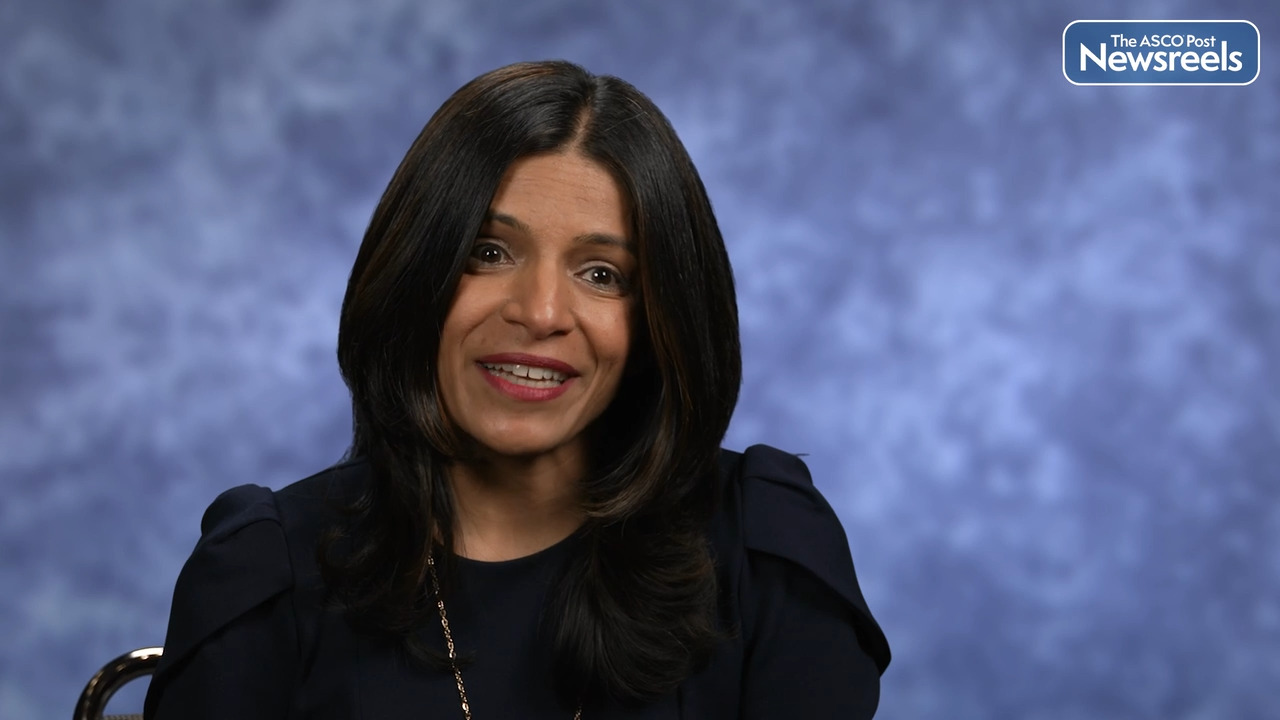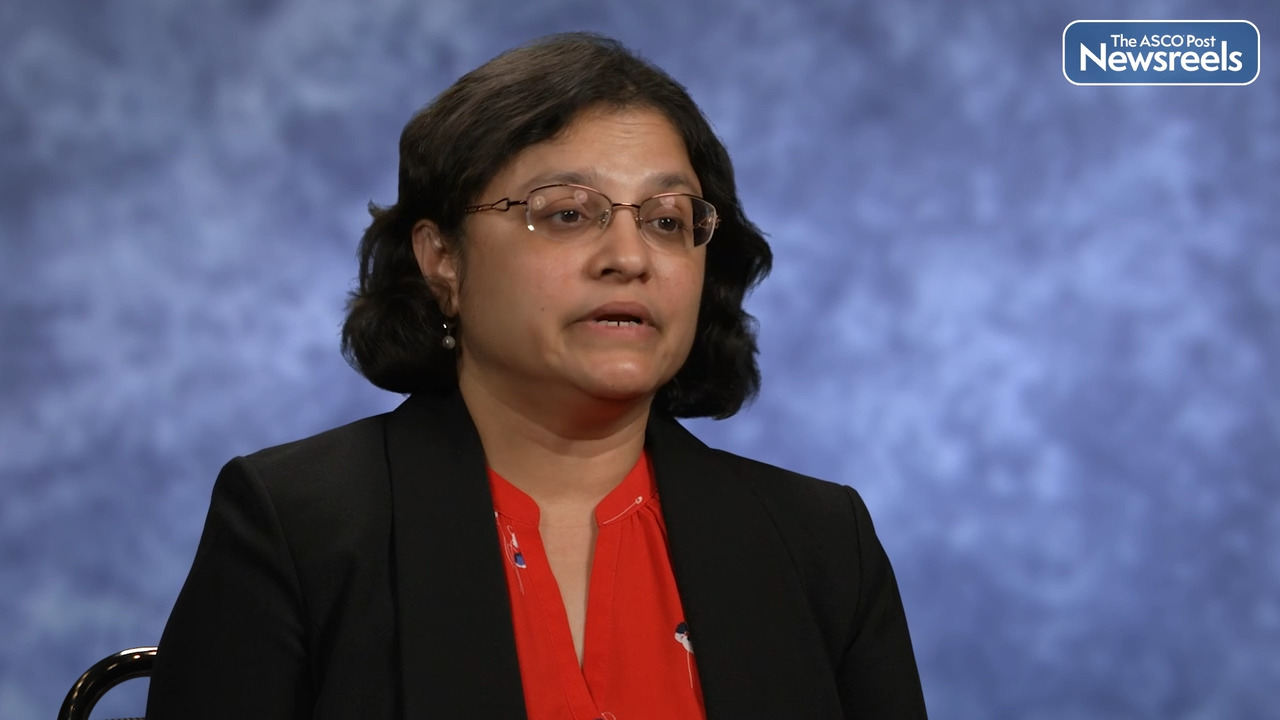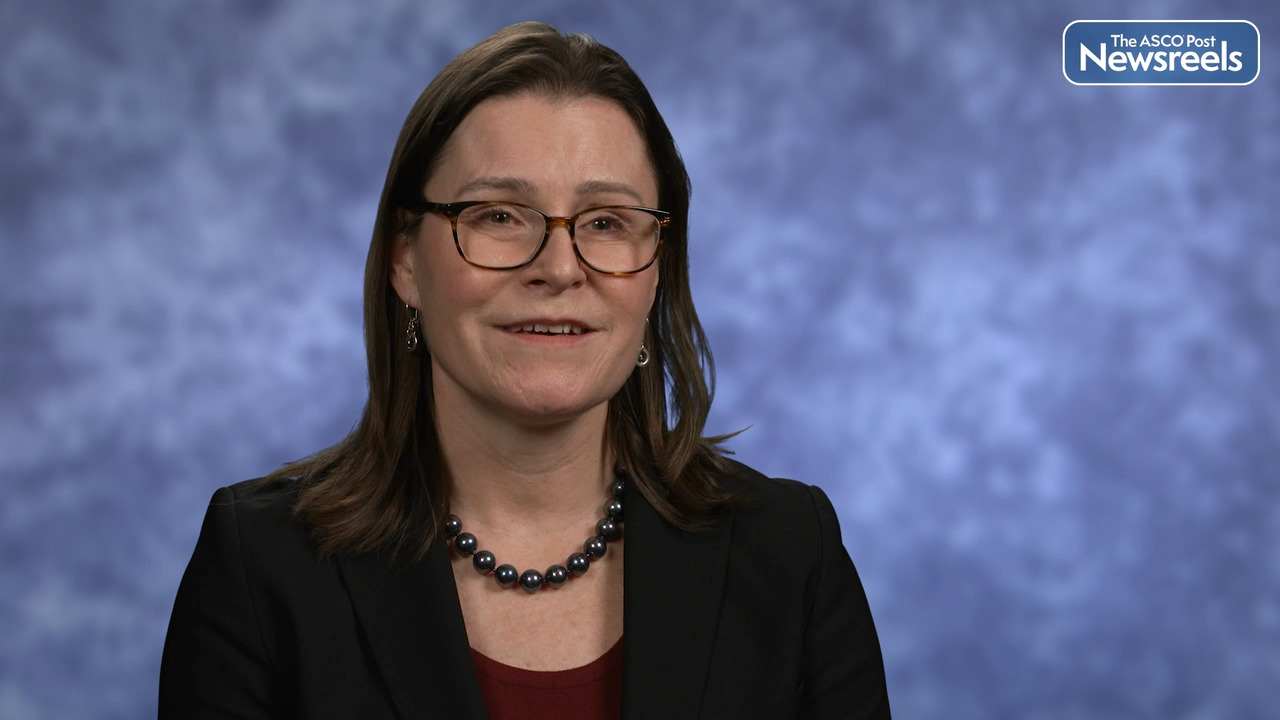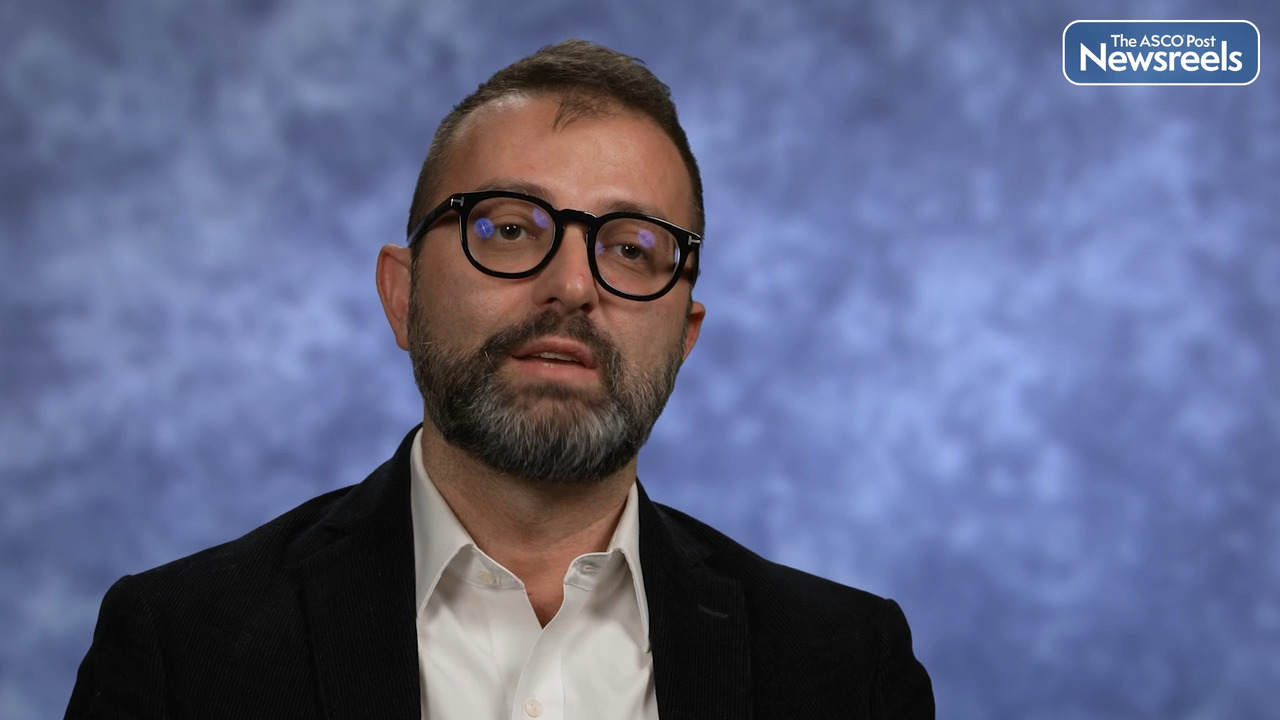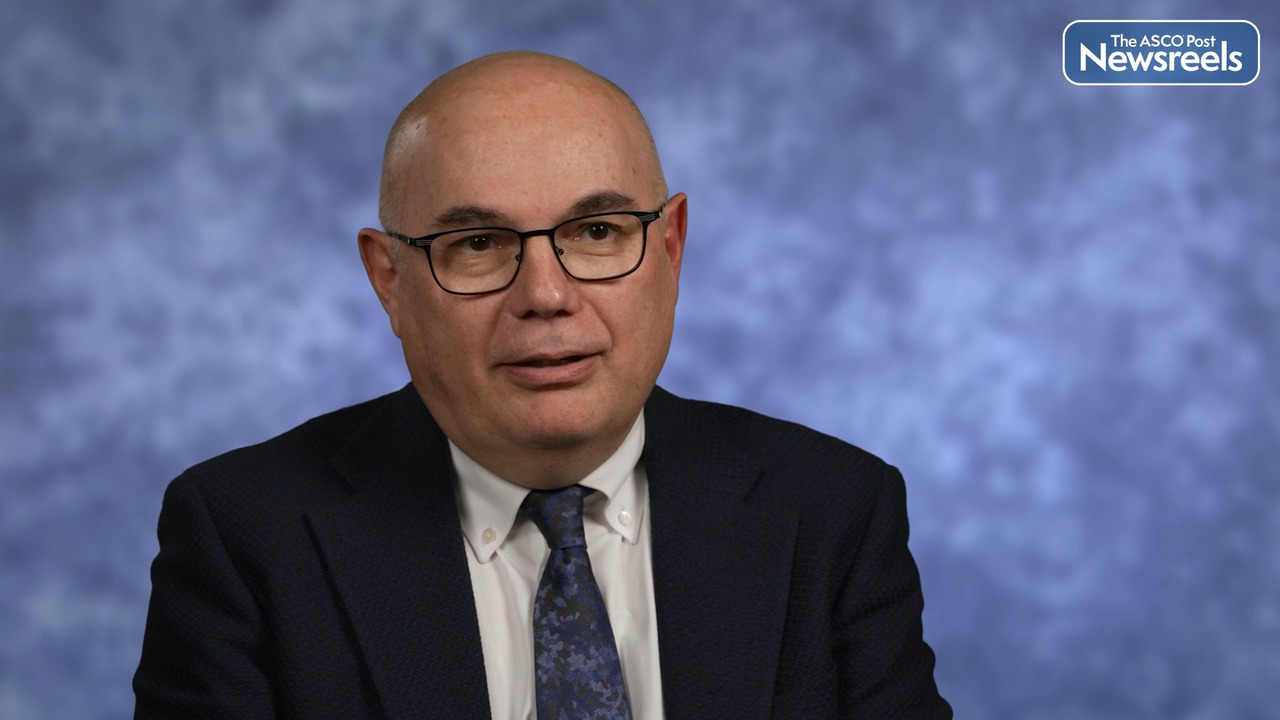Souya Nunobe, MD, PhD, on Gastric Cancer: 5-Year Follow-up on S-1 Chemotherapy for Stage II Disease
2023 ASCO Gastrointestinal Cancers Symposium
Souya Nunobe, MD, PhD, of Japan’s Cancer Institute Hospital and the Japanese Foundation for Cancer Research, discusses 5-year follow-up results of the phase III OPAS-1 trial, which compared four and eight courses of S-1, a novel oral fluoropyrimidine derivative adjuvant chemotherapy for patients with stage II gastric cancer. These final follow-up findings confirmed the benefit of S-1 and its use for 1 year to treat this population (Abstract 381).
Transcript
Disclaimer: This video transcript has not been proofread or edited and may contain errors.
Based on previous pivotal RCT, adjuvant chemotherapy of S-1 for one year for eight courses is standard treatment for pathological stage II patients who underwent D2 gastrectomy for gastric cancer. Survival of pathological stage II of patient was dramatically improved by S-1, achieving high five-year survival of 84%. So, we assume that four courses of S-1 may be a sufficient treatment and conducted JACOG1104 Phase III trial, which compared four courses and eight courses of S-1 adjuvant chemotherapy. At the first interim analysis in 2017, the present trial was terminated due to futility. Four courses of S-1 was inferior to eight courses of S-1 in terms of relapse-free survival. Here we report the final follow-up data.
Between 2012 and 2017, 519 patient were enrolled and 295 patient were allocated to each group. When the present study was terminated at the interim analysis, 27 patients of four courses were receiving S-1. Among them, 22 patients accepted the proposal to continue until eight courses. As final survival result, the RFS at five years was 85.6% for four courses and 87.7% for eight courses. The overall survival at five years was 88.6% for four courses and 89.7% for eight courses. Four courses of S-1 was [inaudible 00:02:27] inferior to eight courses of S-1 in terms of relapse-free survival.
In conclusion, this final follow-up data confirmed the primary result presented at the interim analysis. Adjuvant chemotherapy for one year or eight courses is highly recommended for pathological stage II gastric cancer.
The ASCO Post Staff
Rachna T. Shroff, MD, of the University of Arizona Cancer Center, discusses phase III results from the SWOG 1815 study, which compared gemcitabine, cisplatin, and nab-paclitaxel vs gemcitabine and cisplatin in patients with newly diagnosed, advanced biliary tract cancers. Although adding nab-paclitaxel to gemcitabine and cisplatin did not improve median overall survival in this population, exploratory analyses in patients with locally advanced disease or gallbladder cancer suggest potential clinical utility in these settings, which may warrant further evaluation (Abstract LBA490).
The ASCO Post Staff
Manik A. Amin, MD, of Dartmouth Cancer Center, discusses the future of immunotherapy in gastrointestinal cancers, the challenges of creating effective adoptive cell therapies, and the next generation of immune checkpoint inhibitors.
The ASCO Post Staff
Laura A. Dawson, MD, of Canada’s Princess Margaret Cancer Centre, discusses phase III findings showing that compared with best supportive care alone, single-fraction whole-liver radiation therapy appears to improve hepatic pain in the majority of patients with treatment-refractory or -ineligible hepatocellular carcinoma or liver metastases. In addition, the data indicated a trend for improved 3-month survival with radiation therapy (Abstract LBA492).
The ASCO Post Staff
Filippo Pietrantonio, MD, of Italy’s Istituto Nazionale dei Tumori, discusses phase II results from the INFINITY trial of tremelimumab and durvalumab as neoadjuvant treatment of patients with microsatellite instability–high (MSI) resectable gastric or gastroesophageal junction adenocarcinoma (GAC/GEJAC). These results open the way to investigate nonoperative management in patients with clinical, pathologic, and molecular complete response after T300/D (300 mg of tremelimumab and 1,500 mg every 4 weeks of durvalumab) (Abstract 358).
The ASCO Post Staff
Josep Tabernero, MD, PhD, of Spain’s Vall d’Hebron Institute of Oncology, discusses phase III findings from the SUNLIGHT study, which showed that trifluridine and tipiracil (FTD/TPI) plus bevacizumab resulted in improved outcomes compared with FTD/TPI alone in patients with refractory metastatic colorectal cancer. Improvements in survival occurred irrespective of tumor sidedness, RAS mutational status, and receipt of prior bevacizumab. This three-drug regimen may represent a new standard of care for patients whose cancer has progressed after two lines of therapy (Abstract 4).
